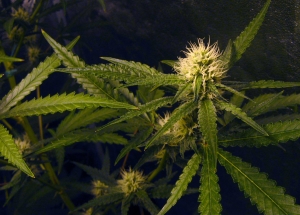Marijuana Delivery Services in LA Could End
Medical marijuana delivery services have become quite popular in recent years. Essentially, a person can use an app on their smartphone and order medical cannabis just like they would order anything else. Once the patient has verified they have a valid physician’s recommendation for medical marijuana, they can place their order and a driver will be dispatched.
 These drivers are generally similar to Uber drivers and are part of what is now being called the on-demand economy or workforce. Usually, when we hear about on-demand jobs, including drivers, were are reading about whether they are employees or independent contractors and other employment law related questions.
These drivers are generally similar to Uber drivers and are part of what is now being called the on-demand economy or workforce. Usually, when we hear about on-demand jobs, including drivers, were are reading about whether they are employees or independent contractors and other employment law related questions.
Continue reading
 Cannabis Law Group's Medical Marijuana Legal Blog
Cannabis Law Group's Medical Marijuana Legal Blog





 According to a recent news article from
According to a recent news article from  However, despite the obvious damage, those entering the industry need to make sure that whatever they do to assist patients and maximize revenue will not be seen as interfering with the ever changing medical cannabis laws in the State of California and the local ordinances in the Los Angeles area.
However, despite the obvious damage, those entering the industry need to make sure that whatever they do to assist patients and maximize revenue will not be seen as interfering with the ever changing medical cannabis laws in the State of California and the local ordinances in the Los Angeles area. Researchers at the San Diego State University began to review public health surveys from around the country through a process known as surveillance. The date on these surveys covered the period of time from 1990 until 2012. What they found was, in states where medical marijuana is legal, average obesity rates are as much as six percent lower than they were predicted to be. Obviously, it would be easy to be skeptical, since the researchers would have to prove causation and also overcome data and empirical research that shows the opposite effect to be true. For example, HIV patients experience serious complications from unintended weight loss, and marijuana has been proven to be an appetite stimulant.
Researchers at the San Diego State University began to review public health surveys from around the country through a process known as surveillance. The date on these surveys covered the period of time from 1990 until 2012. What they found was, in states where medical marijuana is legal, average obesity rates are as much as six percent lower than they were predicted to be. Obviously, it would be easy to be skeptical, since the researchers would have to prove causation and also overcome data and empirical research that shows the opposite effect to be true. For example, HIV patients experience serious complications from unintended weight loss, and marijuana has been proven to be an appetite stimulant.
 According to a recent news feature from
According to a recent news feature from  However, as with any business, there are various ways to measure success. For some smaller companies, net earnings are the true benchmark of performance. In other words, the amount of money an owner can deposit in his or her personal bank account each month is the measure of success. For some large companies, especially publicly traded ones, year over year growth and efficiencies may be the gold standard of whether a business is doing well. At the same time, others will only focus on individual figures, such as return on investment (ROI) and monetization, even if that involves troublesome over-valuation.
However, as with any business, there are various ways to measure success. For some smaller companies, net earnings are the true benchmark of performance. In other words, the amount of money an owner can deposit in his or her personal bank account each month is the measure of success. For some large companies, especially publicly traded ones, year over year growth and efficiencies may be the gold standard of whether a business is doing well. At the same time, others will only focus on individual figures, such as return on investment (ROI) and monetization, even if that involves troublesome over-valuation.  The now former program director was a 26-year veteran of the state police and is said to be relocating with his family following his resignation. The medical marijuana program’s second in charge has been placed in the position of acting director until a suitable replacement can be found.
The now former program director was a 26-year veteran of the state police and is said to be relocating with his family following his resignation. The medical marijuana program’s second in charge has been placed in the position of acting director until a suitable replacement can be found. 